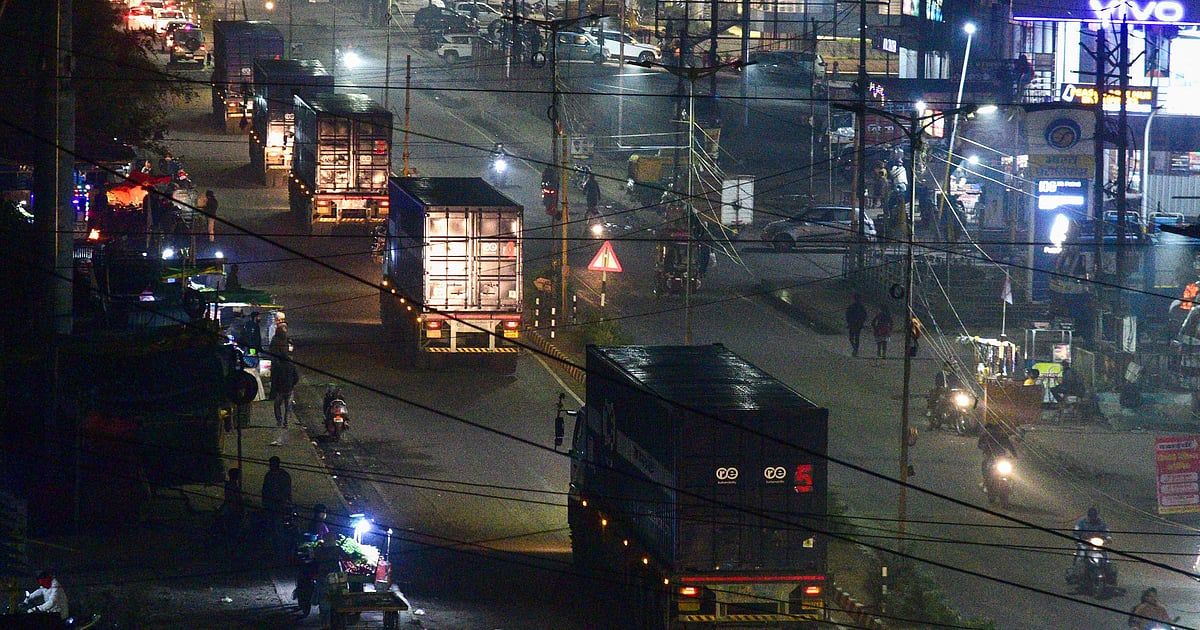 |
|
Forty years after the devastating Bhopal gas tragedy, a significant development has unfolded with the relocation of 377 tons of waste from the defunct Union Carbide factory. This substantial amount of waste, a lingering remnant of the catastrophic industrial accident, has been transported to a disposal unit situated in Dhar district, Madhya Pradesh. The move, announced by Madhya Pradesh Chief Minister Shivraj Singh Chouhan, has sparked renewed debate and scrutiny regarding the long-term environmental consequences of the incident and the safety protocols implemented for the waste's handling and ultimate disposal. The statement by the Chief Minister that the waste is not poisonous needs to be carefully considered in light of the devastating impact of the original gas leak, which resulted in thousands of immediate deaths and continues to cause health problems for those affected and their descendants. This raises vital questions about the comprehensive testing and verification procedures employed to determine the current non-toxic status of the waste, the rigorous methodology applied to analyze its chemical composition and potential environmental hazards, and the level of transparency in disseminating such information to the public and relevant stakeholders.
The decision to transport and dispose of the waste in Dhar district, rather than a location potentially further from populated areas, has understandably raised concerns among local residents. Concerns over potential environmental contamination, especially given the history of the Union Carbide disaster, are palpable and require careful consideration. The need for comprehensive risk assessment and environmental impact studies prior to the relocation, as well as ongoing monitoring and assessment following the disposal, cannot be overstated. Independent verification of the waste's non-toxic nature by independent and internationally recognized environmental agencies is essential to allay public fears and assure transparency. The Madhya Pradesh government bears the responsibility of fully disclosing the specifics of the disposal process, providing the public with access to detailed environmental impact reports and assessment studies, and addressing concerns about transparency and accountability in the waste management process.
The Bhopal gas tragedy remains a stark reminder of the catastrophic consequences of industrial negligence and the long-lasting repercussions of environmental disasters. The handling of the waste generated from this tragedy requires meticulous attention to detail and unwavering adherence to the highest standards of environmental safety and public health. The long-term health consequences of exposure to even low levels of hazardous chemicals are well-documented, and a cautious and transparent approach to managing this waste is not only a moral imperative but also a legal and ethical responsibility. This incident underscores the need for stricter regulations, stricter enforcement of existing regulations, and greater international cooperation in the management of hazardous industrial waste. Furthermore, the incident highlights the ongoing need for comprehensive remediation efforts at the original Union Carbide site, and for continued medical care and support for the victims and their families affected by the tragic incident of 1984.
Beyond the immediate environmental concerns, the handling of this waste also presents a critical juncture for addressing the legacy of the Bhopal gas tragedy. The long-standing unresolved issues related to compensation for victims, accountability for the disaster, and environmental restoration of the affected areas warrant renewed attention. This recent action of waste relocation serves as a potent reminder of the need for comprehensive redressal of the historical injustices associated with the disaster, and the ongoing struggle for justice and accountability. Addressing these broader issues, alongside the immediate concerns about the relocated waste, is paramount in ensuring the long-term wellbeing of the affected communities and in fostering a commitment to preventing similar tragedies in the future. The continued lack of adequate compensation and environmental cleanup efforts casts a shadow on claims of non-toxicity and underscores the necessity for a more transparent and accountable approach to environmental remediation in India and globally.
The incident underscores the importance of robust environmental regulations, effective enforcement mechanisms, and a strong commitment to corporate social responsibility in preventing future industrial disasters. International collaboration and the sharing of best practices in hazardous waste management are crucial to preventing similar catastrophes from occurring elsewhere. The Bhopal gas tragedy serves as a cautionary tale, highlighting the long-lasting consequences of industrial accidents and the importance of stringent regulations and effective oversight to protect human health and the environment. The incident also raises questions about the efficacy of existing environmental protection laws and regulations in India, highlighting the urgent need for improved legislation and stricter enforcement measures.
Source: Union Carbide waste shifted to Dhar not poisonous: MP CM Yadav
